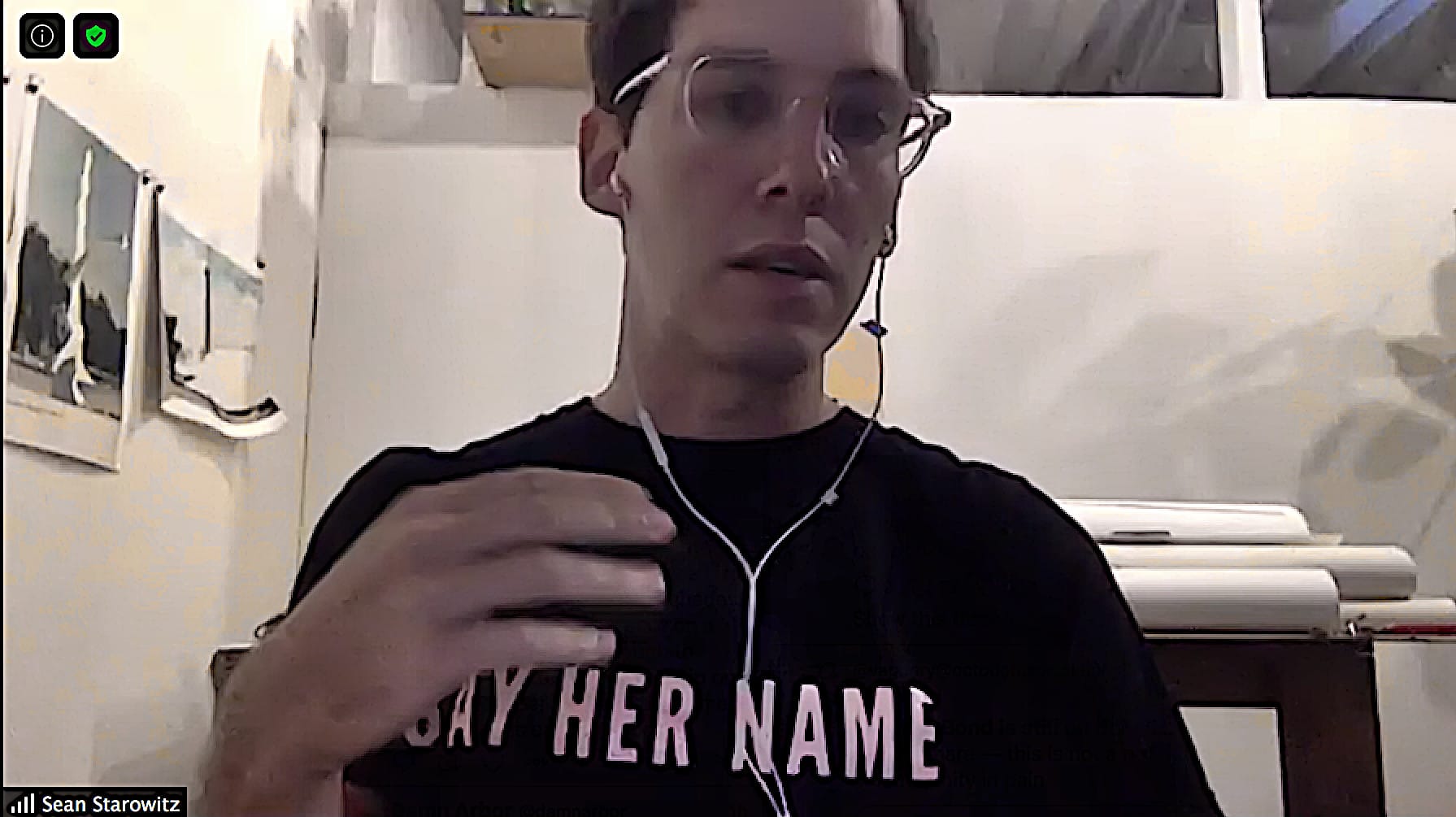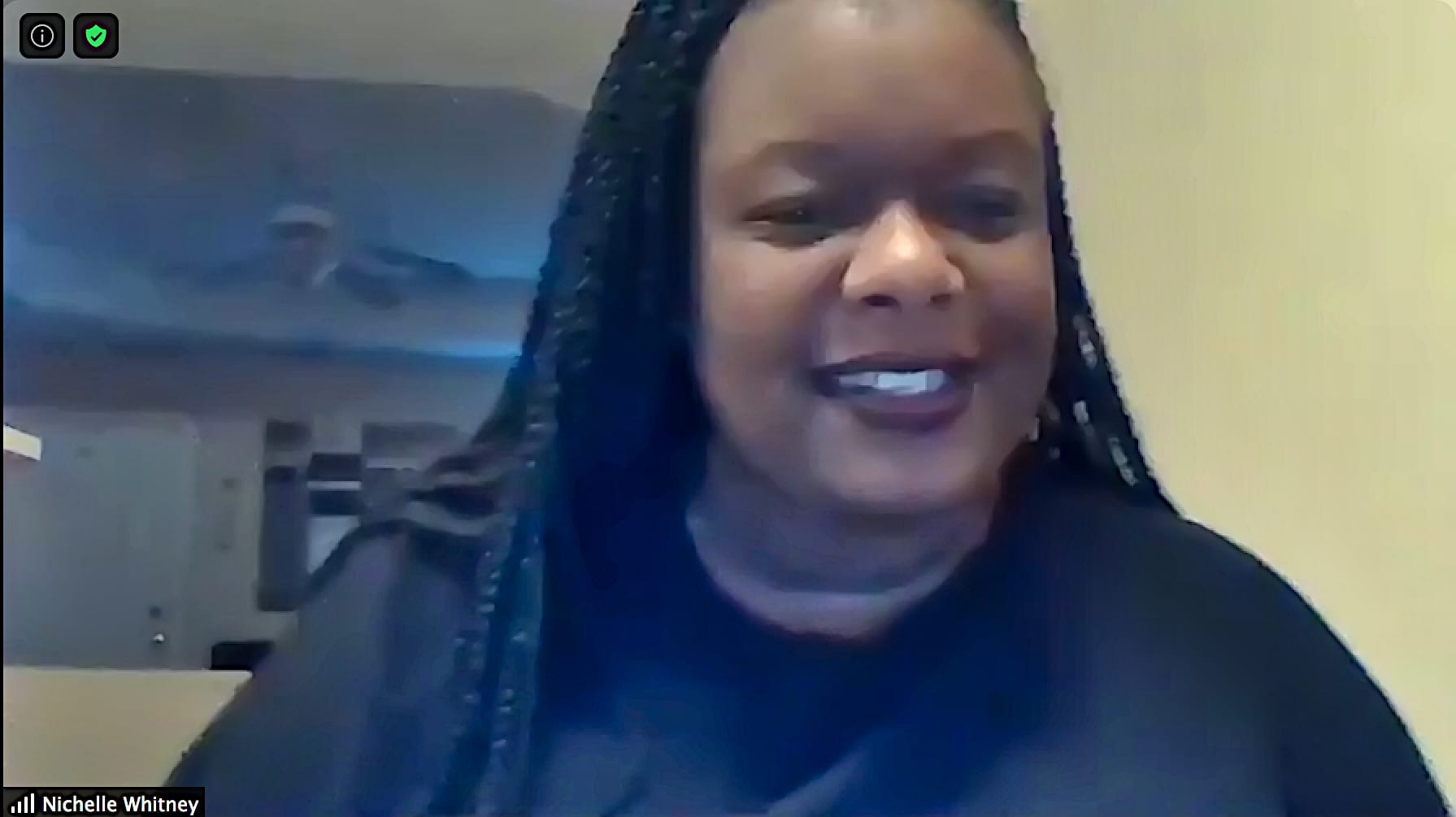Split votes on race-related topics by city, county electeds





Wednesday is the usual meeting day for two local elected bodies—Bloomington’s city council and Monroe County’s board of commissioners. This week they each approved legislation involving anti-racist efforts.
The city council approved a resolution endorsing a proposal for art featuring the phrase “Black Lives Matter.”
The county commissioners approved a $292,500 contract with a consultant to provide diversity training.
Both approvals came without the full support of the elected groups. In a rare non-unanimous vote on the three-member county board, commissioner Penny Githens dissented on the approval of the diversity training contract.
On the city council, Dave Rollo abstained from the vote on the art project, which left the proposal with eight of nine city councilmembers in support of it.
Black Lives Matter murals
When he addressed the Bloomington city council on Wednesday night, Sean Starowitz called the date, September 23, a “day of infamy.” Starowitz is the city’s economic and sustainable development department’s assistant director for the arts.
On Starowitz’s T-shirt was printed the first part of a call-and-response heard nationwide at anti-police-violence protests across the country over the summer: “Say her name.” Her name was Breonna Taylor, a 26-year-old Black woman who was killed by Louisville police officers on March 13, 2020. They were serving a no-knock search warrant shortly after midnight.
Taylor was one reason Starowitz gave why it was a day of infamy. Earlier that day, a grand jury had returned no indictments for two of the three officers who raided Taylor’s apartment. The third was indicted for wanton endangerment, but not for Taylor’s killing. Starowitz said, “As we’ve seen in Louisville today, the justice system failed Breonna Taylor and her family as well.”
The other reason Starowitz gave why the date was infamous came 65 years earlier. In 1955 on Sept. 23, the defendants in the case of the murder of Emmett Till, a young Black man, were acquitted by an all-white jury.
The resolution that Starowitz was asking the city council to support on Wednesday was an endorsement of a proposal by the Banneker Community Center advisory council (BCCAC) to create two street murals that would involve the painting of the words “Black Lives Matter” on the public right-of-way. One mural is to be painted on Elm Street and another one at a downtown location yet to be determined.
In addition to the backing of the BCCAC, the proposal had the support of the board of park commissioners and the Bloomington arts commission. The funding to pay artists to complete the murals will be drawn from the Black Y Brown Arts Festival, which was canceled due to the COVID pandemic.
Erik Pearson, the city’s program and facility coordinator at the Banneker Community Center, described how the proposal to develop and propose the two Black Lives Matter street murals had started in July.
Autumn Brunelle, who introduced herself as an indigenous community member of the BCCAC said, “We are all in this together as Brown and Black people within the city of Bloomington.” Brunelle said the statement made by the murals is important, “because it is taking this official anti-racist approach,” which many community members have been asking the city to take, she said.
Another member of the BCCAC, Nichelle Whitney, described how requests have been made for different designs by three local Black and Brown artists who will be responsible for designing one word each of the Black Lives Matter mural.
Whitney told the council, “We’re really interested in partnering with you guys in a working session … at a time where we can get together and talk about some shared objectives and accountability points that the council feels that they can commit to—Banneker Community Center advisory council, as well as the city council.”
In his remarks, councilmember Jim Sims said, “As many people know, local government comes with a lot of moving parts and different things that we have to do. So I’d like to recognize that this resolution that we’re talking about tonight has unanimous support from the office of the mayor, community and family resources department, the economic and sustainable development department and public works. …I am very, very, very happy to support it this evening.”
Other councilmembers expressed their support in turn.
Councilmember Dave Rollo said, “I’d like to say that I overwhelmingly support Black Lives Matter, the sentiment.” He added, “That said, there is the sentiment and then there is a political organization called Black Lives Matter. And they’re often conflated. And this gives me some apprehension.”
Rollo said, “I am not in favor of using government funds to promote a political organization. I would be in favor of promoting the sentiment.” Rollo said because the sentiment and the political organization are often conflated and confused, it would be left for the public to interpret, which one is being promoted by the city of Bloomington.
Rollo described how there are court cases challenging cities that have adopted resolutions like the one the city council was being asked to support.
Rollo wrapped up his remarks by saying he’d abstain when the vote was taken, because of the potential for court challenges: “It’s far from clear exactly how that’s going to work out. I expect that we’ll probably have petitions from perhaps other political organizations. So, because of that apprehension, I will be passing this evening.”
Monroe County diversity training
On Wednesday, about eight hours before she delivered her remarks to the city council in support of the two Black Lives Matter murals, Nichelle Whitney attended the Monroe County board of commissioners meeting.
On the agenda was a $292,500 contract for diversity training, to be awarded to The Guarden, which is a company Whitney founded.
The contract describes training in de-escalation, identifying and confronting bias, imposter syndrome and the workplace, bystander intervention, and culturally sensitive communication. At total of 225 employees will be trained.
That’s a number that commissioner Penny Githens described as “less than half the county’s employees.”
Githens had a number of other qualms with the proposal, which she prefaced by saying, “I believe Black Lives Matter. I believe racism exists in America, and I would sincerely like to see an end to it.”
Githens questioned whether the training was needed: “No needs assessment of the county’s employees has been conducted. So it is difficult to know if diversity training is even needed.”
Githens was critical of the proposed use of the Implicit Association Test to measure the presence of racism, sexism, ageism, or other forms of workplace bias. Githens said, “The various forms of this test have not been shown to be either reliable or valid.”
Githens described her own credentials: “I have a master’s degree in educational psychology, and for over 20 years, I have done volunteer work as an educational advocate for special needs students.” Based on her experience, observational assessments are needed to check whether the training has changed a person’s behavior, Githens said. “No observational assessments have been built into this training,” she said.
Githens questioned whether an adequate effort was made to find an experienced contractor to do the training: “I am disappointed in how little exploration was done on finding an experienced group to do the diversity, equity and inclusion, or DEI training.”
Githens said she’d learned from a retired human resources professional about an organization in Ohio that she described as “an experienced group that has done training for the Centers for Disease Control, the NCAA, Procter and Gamble, the NBA, and a host of other organizations.”
Githens said she was not criticizing Whitney: “I’m not being negative about Miss Whitney. She’s hardworking and has already brought innovative programs into our community like the maternal and child health grants that we will be discussing later this morning.”
Githens wrapped up by citing the cost as one of the reasons she wanted to see the vote postponed: “In the time of COVID, when many of our local residents are relying on food pantries, and families are facing eviction and/or utility shutoffs, I cannot justify spending more than $300,000 of taxpayer money on this training.”
Githens concluded, “There are no assurances that approving this contract, aimed at such a small group of people, will help us bring about even a fraction of the change we want to see.”
Whitney responded first by telling Githens, “I really appreciate your commitment to protecting the integrity of the taxpayer dollars.”
Whitney then recounted some of the communications between her and Githens: “I know that you and I have had a series of conversations, some via email, some in person. I do want to be very clear that I think you’re sharing some partial truths on today’s call in your statement, and that you’re not accurately reflecting all of the things that we have discussed.”
An example of “partial truths” given by Whitney involved the Implicit Association Test. Whitney said, “You did not fully disclose what we discussed, and why the IAT is used widely in trainings and how it impacts or what it really brings forward about people’s self-awareness of behavior.”
Whitney told Githens, “I respect your lens. I think that in any group, there’s always going to be a Commissioner Githens who has questions and hesitations about this type of training.”
Whitney added, “I also would caution you in public meetings when suggesting that I’m not experienced, or that our team is not experienced, when we have sent you our CV and resumes of the contractors that will be working on this project.”
Whitney added to her description of the back-and-forth she’d had with Githens: “I asked you very specifically at our last meeting: What is your level of comfort with diversity education? And if I were to ask you to co-facilitate an implicit bias training with me, would you be able to do that? …Your self-perceived level of comfort at that time was not that you could effectively offer that type of training.”
Whitney told Githens, “To say on this call, that I’m not experienced or couldn’t do that, I think is, in many ways, malpractice to your community.”
The Guarden believes in education, accountability, and grace, Whitney said. She had seen a commitment from Monroe County staff who are on board with that, Whitney said. She closed out her response by saying, “I really do hope that Monroe County staff will get an opportunity to go through this training.”
The other two commissioners, Julie Thomas and Lee Jones, indicated their support of the contract.
Thomas said that the number of county employees to be trained was reduced, because the probation department, the sheriff’s office, the courts and prosecutor employees were not included. Those employees are already getting similar training, Thomas said.
Jones said the contract did not cover only anti-racism training. She called it “a broad, overarching program that will generally help people to engage with each other in a more respectful, thoughtful manner.”




Comments ()